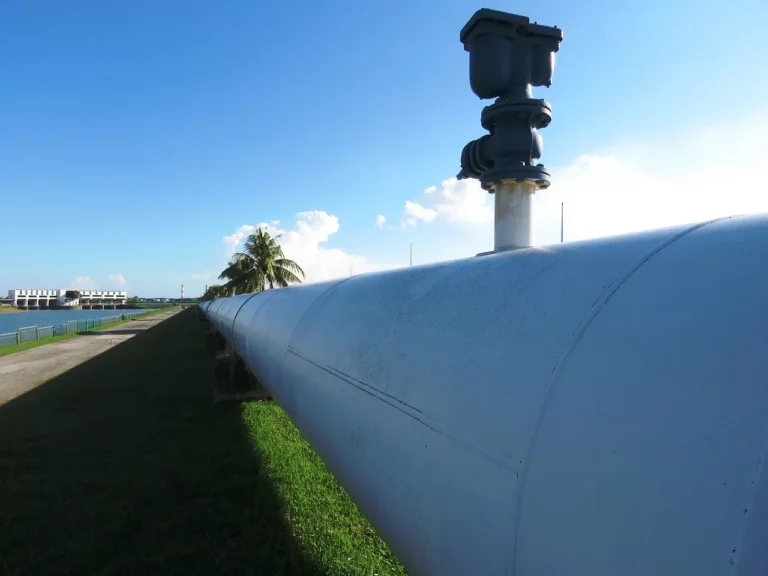
Texas Gulflink Deepwater Port Approved by U.S. Maritime Administration
Sentinel Midstream LLC (“Sentinel”), a Dallas-based provider of crude oil midstream solutions, has reached a significant milestone with the approval of its “Texas GulfLink” deepwater crude oil export terminal by the U.S. Department of Transportation’s Maritime Administration. The Record of Decision (“ROD”) grants the deepwater port license, concluding an extensive multi-year review process that involved rigorous environmental and technical assessments, multiple draft environmental impact statements, and public hearings. This approval represents a major step forward for the U.S. energy sector, unlocking new opportunities for crude oil exports.
Transforming Crude Oil Exports with Texas GulfLink
Texas GulfLink, situated approximately 30 miles off the coast of Brazoria County, Texas, is designed to accommodate Very Large Crude Carriers (“VLCCs”), setting a new benchmark for crude oil loading efficiency. The project aims to streamline export logistics, significantly reducing costs associated with crude transportation. By improving vessel traffic management in congested Gulf Coast ship channels, Texas GulfLink is expected to mitigate bottlenecks and enhance overall shipping safety.
Another key benefit of the terminal is its role in reducing environmental impact. The project aims to curb air emissions by minimizing the need for traditional lightering operations, in which smaller vessels transfer crude oil to larger ships offshore. Additionally, Texas GulfLink will integrate state-of-the-art vapor recovery technology to further enhance its environmental performance. This commitment to sustainability underscores the project’s role in supporting cleaner energy logistics while meeting global crude oil demand.
Texas GulfLink’s approval aligns with U.S. energy policies emphasizing energy independence and market leadership. As part of broader efforts to bolster domestic energy exports, the terminal’s development is expected to solidify the U.S. position as a dominant supplier in global energy markets.
Industry Reactions and Strategic Implications
The approval of Texas GulfLink has drawn positive reactions from industry leaders and government officials. U.S. Transportation Secretary Sean P. Duffy emphasized the strategic importance of the project in expanding American energy exports. “This approval is a declaration that American energy will fuel not just our own economy, but the global market—on our terms,” said Duffy in a separate statement. “The ROD opens the floodgates for American oil exports, putting our producers in the driver’s seat and ensuring that the world looks to the United States—not foreign adversaries—for energy supply.”

Sentinel’s President and CEO, Jeff Ballard, acknowledged the collective efforts that contributed to this milestone. “This permitting milestone is a testament to the hard work, perseverance, and expertise of the Sentinel team,” Ballard stated. “I also want to thank ABADIE LLC, Miller Strategies, and our counsel, Kean Miller LLP, for their help in achieving this great result for our company. Because of the team’s efforts, Texas GulfLink is now well positioned to capitalize on strong market interest and advance as the premier offshore crude oil export facility in the United States.”
Economic and Market Impact
The Texas GulfLink terminal is poised to bring significant economic benefits to both local and national markets. By facilitating increased crude oil exports, the project is expected to stimulate job creation in construction, operations, and supporting industries. The ripple effects of these developments extend to energy producers, shippers, and service providers who stand to gain from enhanced export infrastructure.
Additionally, Texas GulfLink’s role as an independent deepwater export terminal differentiates it from industry peers. Unlike other terminal projects backed by major integrated oil companies, Texas GulfLink offers shippers tailored commercial solutions with competitive market rates and terms. This independence allows for greater flexibility in responding to market fluctuations and customer demands.
The global crude oil market has been experiencing shifts due to geopolitical factors, supply chain dynamics, and evolving energy policies. The introduction of Texas GulfLink strengthens the U.S. position in global energy trade, providing a stable and reliable source of crude oil for international buyers. With increasing demand from Asian and European markets, the terminal’s strategic location on the Gulf Coast ensures efficient access to key shipping routes, further bolstering its competitive edge.
Environmental Considerations and Regulatory Compliance
The approval process for Texas GulfLink involved extensive environmental reviews to ensure compliance with federal and state regulations. The project underwent multiple assessments, with agencies evaluating its impact on marine ecosystems, coastal communities, and air quality. The inclusion of advanced vapor recovery technology is a key component in mitigating emissions, reflecting Sentinel’s commitment to responsible environmental stewardship.
Public engagement played a crucial role in the review process, with thousands of comments received from various stakeholders. These perspectives were carefully considered in the final decision, demonstrating the importance of transparency and community involvement in major infrastructure projects.
Texas GulfLink also aligns with broader industry trends toward sustainability. While crude oil remains a vital component of the global energy mix, companies are increasingly focused on reducing the environmental footprint of their operations. Sentinel’s proactive approach to emissions reduction and efficient logistics underscores its commitment to balancing economic growth with environmental responsibility.
Next Steps for Texas GulfLink
With the deepwater port license secured, Sentinel is now focused on meeting the necessary conditions to advance Texas GulfLink toward full-scale implementation. The company will collaborate closely with the U.S. Maritime Administration, the U.S. Coast Guard, and other regulatory bodies to ensure compliance with all operational requirements.
Key next steps include finalizing construction plans, securing commercial commitments, and engaging with stakeholders to optimize the terminal’s integration into existing energy infrastructure. Sentinel remains committed to working alongside policymakers and industry partners to drive the project forward in alignment with national energy priorities.
Texas GulfLink’s approval comes at a pivotal moment for the U.S. energy sector. With increasing demand for efficient export infrastructure, the terminal is well-positioned to address market needs while reinforcing America’s role as a global energy leader. As Sentinel continues to progress toward operational readiness, Texas GulfLink represents a game-changing development that will shape the future of crude oil exports for years to come.







